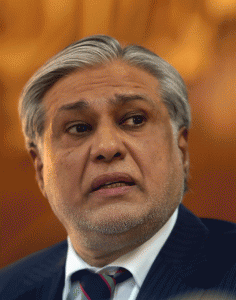Economy: Half-hearted measures to regulate the property market
By Muhammad Ziauddin | Economy | Published 8 years ago
Clandestine property deals are said to have enabled the corrupt to park an estimated seven trillion rupees of tax-evaded loot in a watertight safe haven — one that is easily accessed by our unscrupulous businessmen, crooked bureaucrats, politicians and the not-so-honest generals and judges. Even those who raise their voices against ongoing corruption find it difficult to conduct an honest transaction while selling or purchasing a plot of land. Under the present system, with the best of intentions, anyone who buys or sells a plot of land will end up evading due taxes on the actual price he pays or receives, because the official valuer prices the property at too low a level.
Over the years, most real estate tycoons have virtually bought a seat in the comity of the ruling elite, either directly or through proxy, and their presence is felt in almost all the power echelons in the country. That is why till today no one had even raised a question about the rampant ongoing corruption that is making a handful of Pakistanis richer by the day at the cost of the national exchequer.
It is not clear what prompted a government with a significant real estate wing in its own party to even moot a move that brought the real estate market in the country to a standstill. However, the government soon caved in to pressure mounted by the powerful real estate lobby to amend its own law, passed along with the 2016-17 budget. It agreed to a scheme which allows seven trillion rupees of dirty money to be whitened in one go, with no guarantee that even the watered-down law would not be taken off the books next year, a goal which real estate tycoons are quite capable of accomplishing, using their billions to protect their future gains from the tax collectors.
Perhaps the move to introduce the law was prompted by the World Bank, (WB) which holds the crucial financial whip-hand over a revenue-starved Pakistan. The Bank has asked Pakistan to withdraw Capital Gains Tax (CGT) exemption on transfer of properties beyond two years. The WB has also recommended that Pakistan either create an independent valuation authority or adopt the right to acquire sales, as is the practice in India where property transactions are openly advertised. In cases where government evaluators decide that the price is below market value, the government steps in to purchase the property. The World Bank had proposed that the market value of the property should be determined without regard to values used for different purposes by provincial governments.
So, through the Finance Act 2016, the government approved an amendment to Section 68 of the Income Tax Ordinance, allowing the FBR to determine the fair market value of any property without taking into consideration the value fixed or notified by any provincial authority.
Previously, property valuation was carried out by revenue officials under an archaic system which did not reflect the true market price. For example, various properties in DHA, Karachi, were valued at Rs1, 650 per square yard, against the prevailing market price of up to Rs155, 000.
Occasional moves to check this menace and control the spread of the parallel economy could not succeed.
Till June 30, 2016 the value of property for tax purposes was determined on the basis of rates set by the district collector (DC), which in most cases were several times lower than the prevailing market rates.
Having passed the relevant legislation in the finance bill, the government perhaps unable to sustain the pressure from within its own real estate lobby began, in the very first week of the first month of the new financial year, stepping back from its stance of taxing gains from the property business at fair market value and constituted a committee of stakeholders to find a solution acceptable to both the government and the real estate lobby.
As expected, the government succumbed to the pressure of the real estate lobby, which at one point had even threatened to give a strike call. When the negotiations concluded on what was described by the two parties to the dispute as a ‘positive note,’ the government had granted a tax amnesty scheme to the real estate sector and massively lowered the tax burden. The new package appears to be even worse than a general amnesty due to its far-reaching implications for past and new property transactions. The move has actually ended up whitening an estimated Rs. 7 trillion of black money in one go. The government has massively lowered the capital gains tax (CGT) on profits made from real estate transactions.
On July 31, 2016, Finance Minister Ishaq Dar announced that the property valuation agreement between the government and the realty sector would be given immediate effect through a presidential ordinance.
Speaking at a press conference, the minister said the ‘landmark’ deal with realtors would increase the government’s revenue to Rs60 to 70 billion, almost 10 times the amount generated through the Capital Gains Tax (CGT) and withholding tax.
Within 24 hours of striking a deal with land developers and property dealers, Dar announced two major tax exemptions on the transfer of properties for “dependents of martyrs” and parting benefits for “employees in the service of Pakistan,” defined under the Constitution as a one-time benefit.
“There will be no CGT on the first-time sale of properties by dependents of martyrs,” the minister said. Similarly, those in the service of Pakistan, such as the armed forces and the federal and provincial governments, would be charged half the CGT rate as compared to other citizens, if they sold the plots given to them in lieu of service benefits within three years.
 Dar made it clear that the facility would not be available to all defence housing societies originally developed for dependents of martyrs, adding that more than 90 per cent of the transactions in various DHAs were being carried out by the civilians. He said that only the dependents of martyred servicemen would be exempt from CGT.
Dar made it clear that the facility would not be available to all defence housing societies originally developed for dependents of martyrs, adding that more than 90 per cent of the transactions in various DHAs were being carried out by the civilians. He said that only the dependents of martyred servicemen would be exempt from CGT.
Touting the property pricing agreement as a major achievement of the government, he said it would now hold talks with the provinces to adopt the revised valuation rates for collection of tax at the provincial level on reduced rates. But the law introduced through the presidential ordinance would only cover federal taxes and would have nothing to do with provincial levies such as property tax, he explained.
As of July 30, 2016 the gains made by selling properties within 5 years of the holding period were subject to 10 per cent CGT. Now the government has announced the reduction of this period to only three years, which means that there will be zero tax on profits made after three years. Second, the rate for those who sell the properties after two years but within three years has been cut to only 5 per cent. For those who sell their properties after one year but within two years, the rate will be 7.5 per cent. For those who sell properties within one year of purchase the rate has been kept unchanged at 10 per cent.
On the face of it, the government’s single achievement has been the real estate representatives’ agreement to make deals in accordance with revised market value rates, which on an average are 200 to 800 per cent higher than the DC rates. For just Phase VIII of Karachi’s Defence Housing Authority (DHA), the rates will be 20 times higher than the DC rates.
However, these rates are still many times lower than the fair market value. The final decision clearly marks a retreat from the government’s earlier stance to tax the real estate sector on fair market value.
The real story behind how the real estate forced the government to amend the finance bill through a presidential ordinance reads like a typical case of extortion.
As soon as the real estate lobby started showing its teeth, a committee was constituted by the government comprising real estate agents, representatives of the Federation of Pakistan Chambers of Commerce and Industry (FPCCI) and the Federal Board of Revenue (FBR). The Special Assistant to Prime Minister on Revenue, Haroon Akhtar Khan, chaired the committee.
Experts had argued on behalf of the real estate lobby that giving discretionary powers to the FBR or the SBP -nominated panelists would only serve to open up new avenues of corruption. The stakeholders had expressed concern over four clauses of the income tax law that deals with taxation on real estate, in addition to objecting to the procedures being adopted to calculate these taxes. Real estate tycoons contested the government’s decision to charge a flat 10 percent capital gains tax on properties sold within five years of the holding period. They sought reintroduction of the slab rates instead of charging the fixed rate. The valuation system under Section 68 was not acceptable to them and they also rejected the increase in withholding tax on sale and purchase of properties in the budget for 2016-17.
Naveed Zafar Ashfaq Jaffery & Co — a chartered accountancy firm — proposed three solutions. It suggested that a one-time amnesty scheme be introduced for declaring the property at actual cost and paying taxes at two or three percent of the amount of difference between the declared cost and the actual cost. Such a differential amount could be added to declared assets after availing the scheme and payment of taxes.
It was believed that any solution would be for the future and past property transactions would be condoned by offering an amnesty scheme. Property dealers asked the government to gradually increase property valuation over a period of five years; however, the government has proposed an increase in rates over three years.
In order to bring further pressure on the government, the real estate lobby brought business activity in the sector to almost a standstill for at least three weeks in July. The real estate sector slumped as the new rules for property valuation took effect and fresh investment in real estate came to a virtual halt. Real estate prices also began falling in Karachi in response to the budgetary announcement that the fair market price of immovable property would be determined by valuers appointed by the State Bank of Pakistan.



